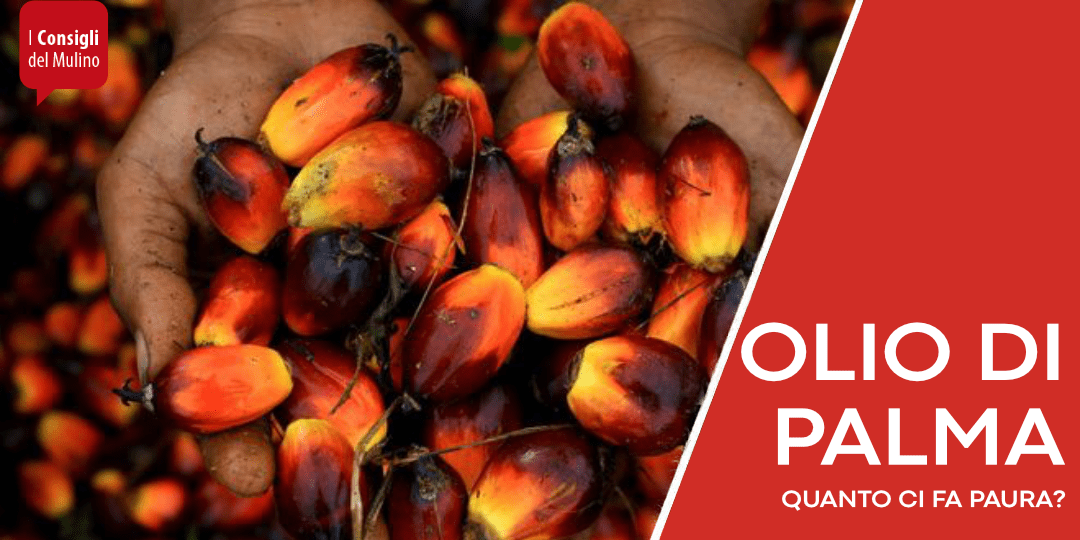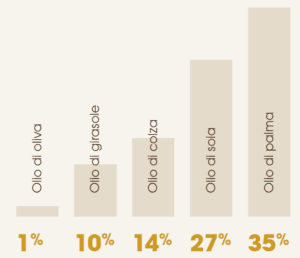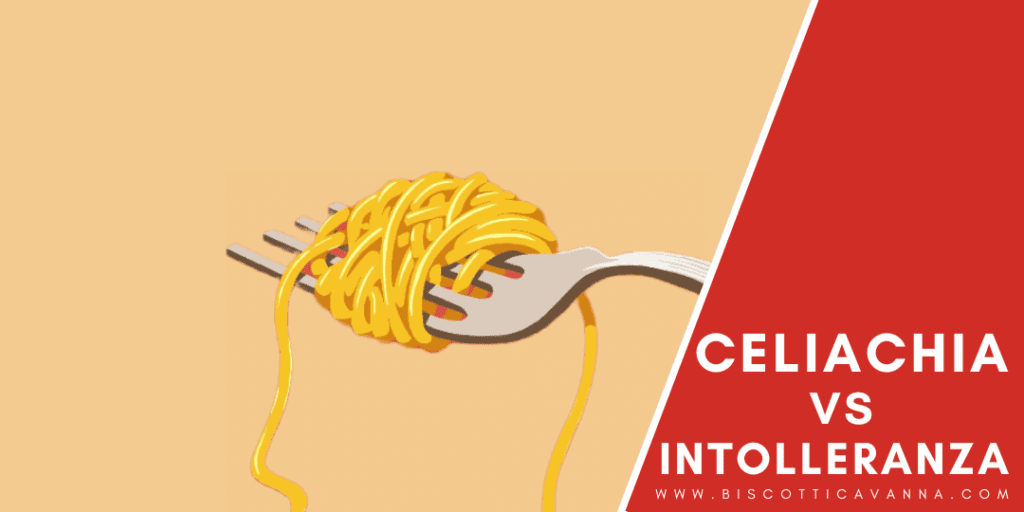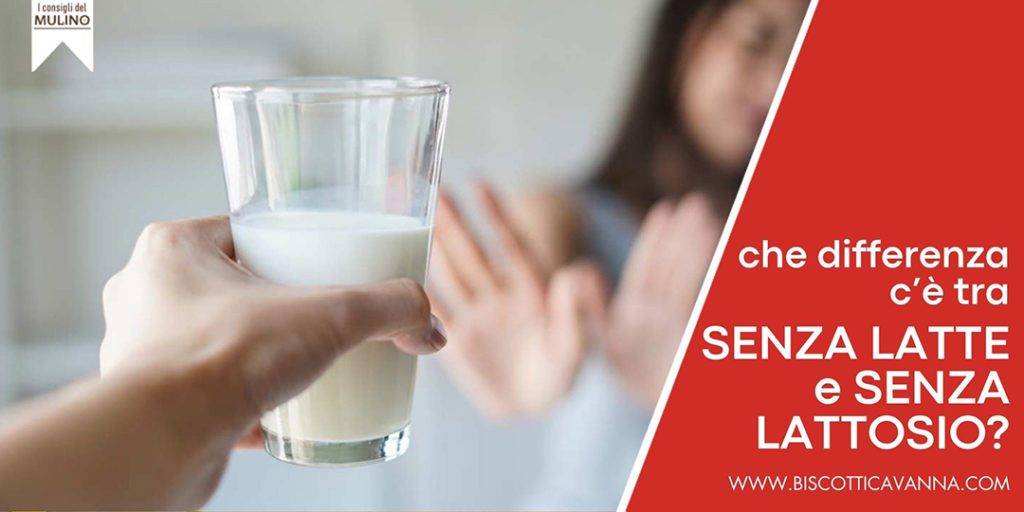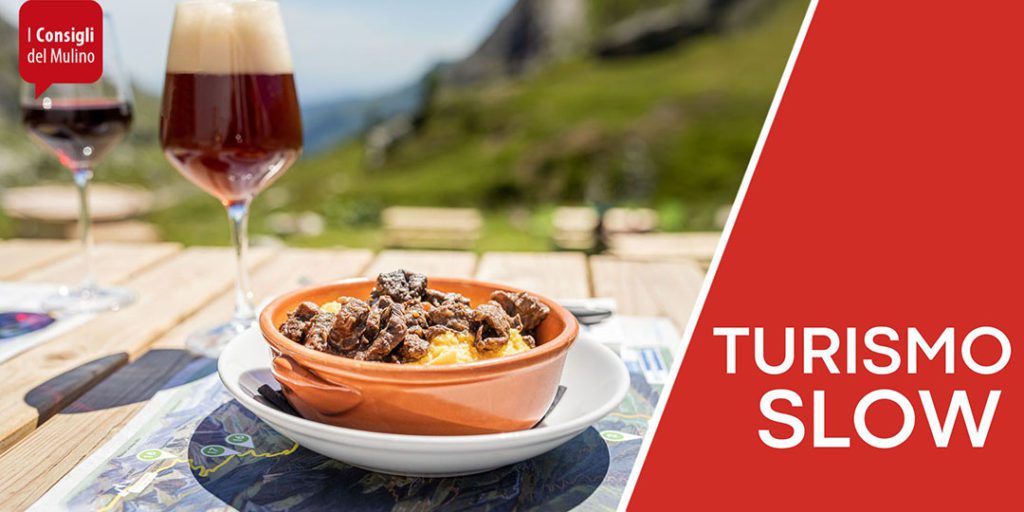An oil as discussed as it is important: palm oil.
Palm oil is a vegetable oil obtained by pressing the pulp of the fruit of oil palms.
It is themost widely consumed edible vegetable oil in the world given its inexpensiveness, and its ability to be very high performance by imparting creaminess to products.
It is found in a great many foods (snacks, breads, snacks and cookies), but also in personal hygiene products (detergents, soaps) and even in objects made of metal, plastic, and rubber, as well as in processes for making textiles, paints, paper and electronic components.
Indonesia and Malaysia are the main producers of it.
It is a typical ingredient widely used in cooking in some African countries such as Angola. In the article you will find:
- Difference between palm oil and other oils
- The reasons for the stir around palm oil
Why does it scare us? - But so is palm oil bad for you?
HOW DOES IT DIFFER FROM OTHER OILS?
Unlike other vegetable oils, it is a fat with ahigh percentage (50%) of saturated fat, thus comparable to butter.
Whether an oil does more or less harm, however, is not determined by the ingredients from which it is derived, but by the different percentages and proportions of the same fatty acids it contains (saturated, monounsaturated, polyunsaturated).
The more unsaturated, the more liquid the fat will be, and vice versa (solids such as butter, coconut oil, cocoa butter)(Dario Bressanini, 2017). 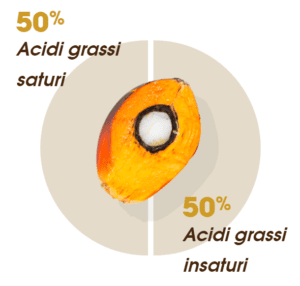 Since the 1950s in particular, saturated acids have been demonized as being linked to cardiovascular problems.
Since the 1950s in particular, saturated acids have been demonized as being linked to cardiovascular problems.
However, recent studies have disproved a causal relationship between saturated fatty acid consumption and cardiovascular disease risk.
Thus, the smear campaign on palm oil, based on the fact that this oil contains a higher percentage of saturated fatty acids than other vegetable oils, is not supported by scientific evidence.
MYTHS, SCALPINGS AND CRITICAL ISSUES
The stir created around the oil in question, however, has mainly to do with environmental and human exploitation.
Indeed, the growing demand for palm oil has given much power to that industry, encouraging theexpansion, in many cases indiscriminate, of oil palm plantations at the expense of peat forests, the biodiversity they harbor, and local people.
In particular, the latter are often deprived of their plots.
The result is plantation labor in inhumane conditions.
On the other hand, it is important to note that, of all oil plants, the palm is the most efficient crop in terms of yield per unit area under cultivation.
In fact, each tree produces helmets varying from 10 to 40 kilograms, and the pulp of the fruits it contains is about %-65% percent rich in oil.
To have a similar yield, other plants require up to eleven times more area.
In addition, these plants do not require irrigation: the tropical rain from the hot, humid areas where they grow is sufficient for their growth. Compared to other crops, therefore, it requires less consumption of water, pesticides and fertilizers(WWF). 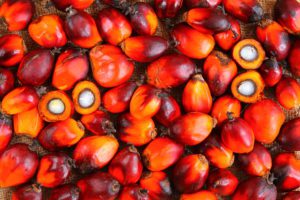 It is important to know that making sustainable palm oil is an achievable challenge.
It is important to know that making sustainable palm oil is an achievable challenge.
One body with the goal of achieving this is the Palm Oil Innovation Group.
It consists of 16 members to determine which forests to preserve and which soils to plant, engage local producers, and create product traceability and transparency throughout the supply chain(Green Peace, 2018).
Between 2010 and 2015, numerous multinational corporations that produce, market, and use palm oil pledged to remove the product from their supply chain at the expense of forests, workers’ rights, and local communities.
Despite this, boycotting products containing palm oil is not for the solution: the risk of palm oil being replaced by intensive exploitation of other oil crops is high and the environmental impacts could be even worse.
WHY IT MAKES US AFRAID – WHAT IS A FOOD FEAR
The media pillory created around palm oil has moved one emotion in particular: fear.
The emotion of fear has strong roots, as it manifests itself in the face of real or imagined danger, which brings a strong disturbance. Every fear is always a symptom, a telltale sign of unease, and has a deep meaning.
Nor can a single, one-size-fits-all explanation be given for the same fear: each of us has our own story, unmistakable and unrepeatable(Treccani Encyclopedia).
Fear of a particular food is called Cytophobia, which is the fear triggered by a negative experience with a food, or a long period of intolerance of such by the body.
This is often related to food guilt, a feeling that arises as a result of eating something and considering this act as a transgression of rules(La Cucina Italiana, 2021).
BUT SO IS PALM OIL BAD FOR YOU?
No! Like all the ingredients in our diet, the key word is EQUILIBRIUM, that is, do not overdo it. So we should not be afraid of it.
Still not convinced?
Then you may not know that within the most complete and healthiest food for growth, breast milk, is palmitic acid (around 20-25%).
It has a peculiar centrality in infant nutrition beginning with breastfeeding.
Saturated fats, in fact, primarily palmitic, provide energy and are crucial in the early stages of life because they are intended for energy stores(Corriere della Sera) . Palm oil contains about 45 percent palmitic acid: in itself, therefore, it is not a threat.
Rather, the amount of fat ingested and lifestyle matter: a varied and balanced diet is the best answer.
What do we use in the cookie factory?
For a choice of yield in preparations and taste, we don’t use palm oil within our products.
Instead, sunflower oil and cocoa butter are present, the combination of which allows us to make good, healthy, quality products.
For example, our Cocoa and Cereal cookies or Cereal and Seed cookies, both of which are RICH WITH GOOD OILS.
Try it to believe!

